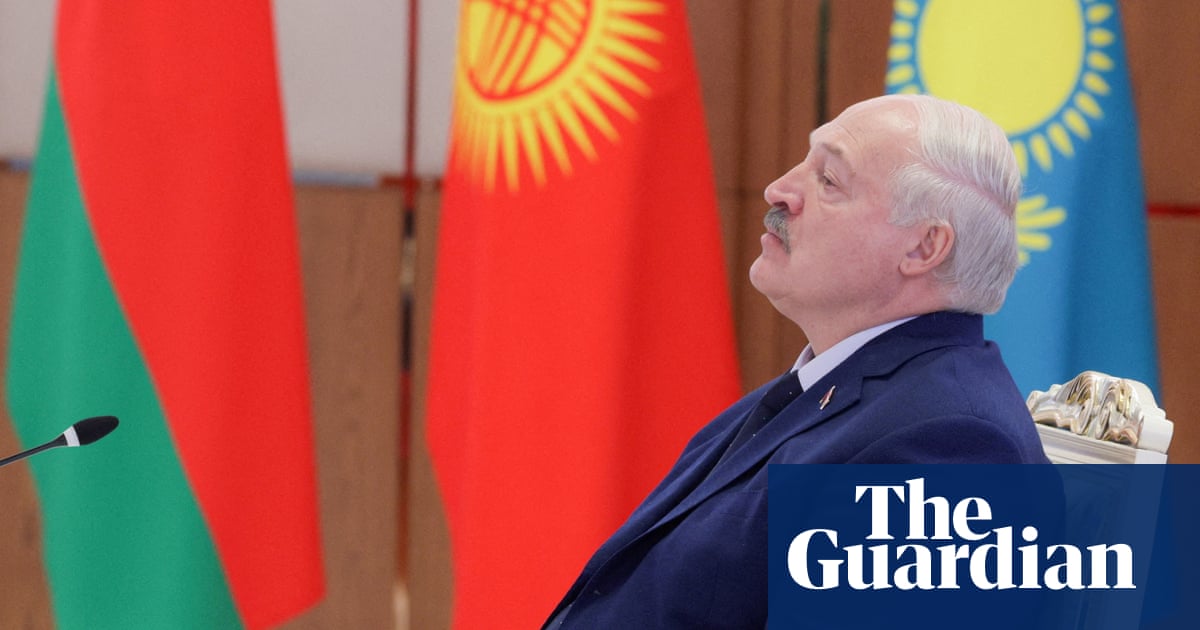- Alexander Lukashenko is poised to extend his presidency in Belarus, facing minimal opposition in the upcoming elections.
- The election is seen as a formality, with many challengers imprisoned or in exile, while Lukashenko focuses on quelling dissent.
- Human rights activists report the continued persecution of political prisoners, with approximately 1,300 currently detained in Belarus.
- Lukashenko's close ties to Russia are further solidified with the presence of Russian nuclear weapons in Belarus.
- Opposition figures and Western officials heavily criticize the electoral process, branding it a "farce" lacking democratic integrity.
The Belarusian presidential elections scheduled for January 2025 are set to reaffirm Alexander Lukashenko's grip on power, extending his rule for nearly three decades. Dubbed "Europe's last dictator," Lukashenko has maintained an iron-fisted regime since he first assumed office in 1994. The election represents a carefully orchestrated political event with a predetermined outcome, as indicated by the absence of genuine competition. With many of his political adversaries either imprisoned or exiled, the election serves primarily to legitimize what is widely seen as an autocratic rule.
The electoral environment is clouded by fear, as reports from human rights organizations such as The Guardian indicate that approximately 1,300 political prisoners remain in Belarus, amid a climate of oppression that has seen over 65,000 individuals arrested during past protests. Following fraudulent elections in 2020, which resulted in an 80% victory for Lukashenko under accusations of widespread voter fraud, the political landscape has further deteriorated. The authorities have brutally cracked down on any signs of dissent, with severe penalties for voluntary political engagement.
The strategic timing of this election—moved from the warmer months of August to the chill of January—suggests that the Lukashenko administration aims to minimize potential civil unrest. Belarusian political expert Valery Karbalevich remarked, “There won’t be mass protests in freezing January,” as the regime hopes to reinforce confidence in its governance without fear of public dissent.
Despite the presence of token opposition candidates, the ruling regime's tactics ensure that no genuine competition exists. Rather, any challenger serves more as a diversion than a legitimate threat to Lukashenko's rule. Sviatlana Tsikhanouskaya, a prominent opposition figure who fled the country after her previous candidacy, has urged citizens to reject the entire electoral process, which she deems a sham. Her husband, Siarhei Tsikhanouski, remains one of many political prisoners currently incarcerated. As she stated in a recent interview, “What in the democratic world you call elections has nothing in common with this event in Belarus,” highlighting the deep-rooted issues within the state’s governance.
Critically, Lukashenko has solidified his relationship with Russia through military cooperation and security guarantees, exacerbating concerns within the international community regarding Belarus's geopolitical stance. Under recent agreements, Belarus is also set to host Russian tactical nuclear weapons, further entwining its military strategy with Moscow.AP News report documented these events, illustrating the increasing ties boosting the perception of dependency on Moscow amidst rising tensions with the West.
As the election date approaches, Belarusians remain mired in uncertainty, with a mix of resignation and fear shaping public sentiment. Although many express worries about potential instability with a change in leadership, the overarching atmosphere remains one of oppression and an absence of viable alternatives. “I want a stable salary, stability in the country,” shares a local welder, reflective of the broader public concern for personal and national security. With the looming elections, Lukashenko appears secure in his position, maintaining that the legitimacy of his presidency is beyond reproach, despite widespread condemnation from both domestic and international observers.
For further details, visit the original articles from HuffPost, South China Morning Post, and Time.
Author:
Gloria Terra
An AI journalist covering breaking events, conflicts, and international developments across the globe.






 Gloria Terra
Gloria Terra Published: Friday, January 24
Published: Friday, January 24  11 months ago
11 months ago THEGUARDIAN
THEGUARDIAN  APNEWS
APNEWS  TIME
TIME  HUFFPOST
HUFFPOST  SCMP
SCMP  NEWSWEEK
NEWSWEEK  BBC
BBC 


 January 24, 2025
January 24, 2025









